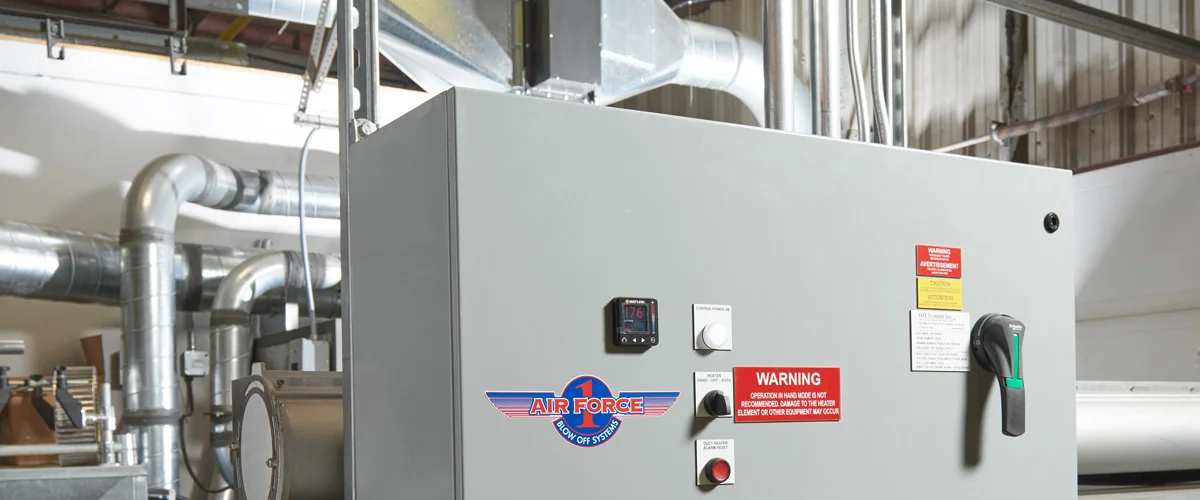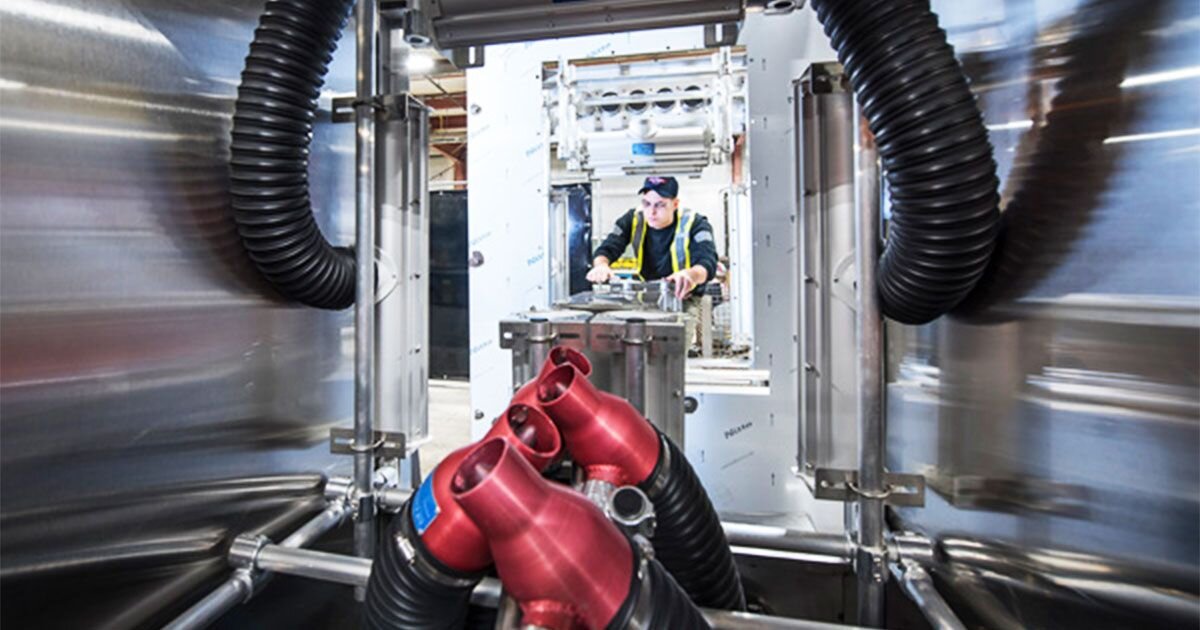
We all know that compressed air systems are energy hogs. In fact, a study by the U.S. Department of Energy found that compressed air systems can account for a whopping 10% of all electricity used in industrial facilities – and in some cases, it can be as high as 30% or more!
But here's the thing: as engineers, we're trained to look beyond the obvious. We're always searching for ways to optimize, improve, and squeeze every bit of efficiency out of our systems.
And when it comes to compressed air, that means digging deeper and uncovering the hidden costs of compressed air blow off systems, not just the obvious ones.
How often do you find yourself replacing worn-out components in your compressed air system? How much valuable floor space is taken up by bulky compressors and storage tanks? And what about dealing with the constant, overpowering noise?
These are the hidden costs of compressed air – expenses that don't always show up on your energy bill but can still have a major impact on your bottom line.
In this post, we'll explore some of these often-overlooked expenses, from maintenance headaches to noise pollution, and show you how choosing the right blower system can lead to substantial savings.
The Hidden Costs of Compressed Air Blow Off
Like any machine on your production floor, there are ongoing costs associated with running blow off systems. And just like you'd carefully evaluate the total cost of ownership for any major investment, it's important to look beyond the baseline energy cost of running compressed air and consider the long-term expenses that can sneak up on you.
1. Maintenance

Think about all the components involved: the compressor itself, storage tanks, dryers, filters, and a whole network of pipes.
Each of these parts has its own maintenance needs, and they all add to your workload and expenses. You need skilled technicians to keep everything running smoothly, from routine inspections to emergency repairs.
Traditional air compressors require regular oil changes and lubrication. The cost of oil, filters, and labor adds up over time. And don't forget about condensate – that annoying byproduct of compressing air. You need to drain it and dispose of it properly, which often involves condensate traps, drains, and filters that need regular attention.
Then there's the dreaded leaks. Compressed air systems are infamous for springing leaks, and even a small one can create big problems: wasted energy, lower system pressure, and extra wear and tear on your equipment. This all translates to higher maintenance costs and potential downtime, which can really throw a wrench in your production schedule.
But it doesn't stop there. All those components – compressors, dryers, filters – have a limited lifespan. Eventually, they'll need to be replaced, which can be a major expense.
Now, compare that to blower-based blow off systems. Blowers have fewer moving parts and operate at lower pressures, which means less maintenance and downtime. Direct drive blowers, in particular, are designed for simplicity and efficiency. They have fewer components and generally require less frequent maintenance.
This translates to lower costs, reduced downtime, and a smoother, more efficient operation overall.
2. Contamination
We often think of compressed air as just that – air. But the reality is, it can carry contaminants that you definitely don't want in your products or equipment.
As we mentioned earlier, most air compressors use oil for lubrication. This oil can end up in the compressed air stream in form of a fine mist or vapor, and it can contaminate your products, damage sensitive equipment, or even create safety hazards.
While filters can help, achieving very high purity levels with compressed air can be a challenge.
Another potential source of contamination is the piping itself. Compressed air systems often involve extensive networks of pipes, and over time, these pipes can accumulate rust, scale, and other debris. This gunk can then get blown out with the compressed air, further degrading air quality. You don’t ever want contamination landing on your finished products or sensitive equipment.
This contamination issue can be a major headache in industries with strict quality and hygiene standards. Think about food processing, pharmaceuticals, electronics manufacturing – any application where even the smallest speck of contamination can ruin an entire batch or damage expensive equipment.
Blower systems offer a cleaner solution. They typically have shorter and simpler ductwork, which minimizes the potential for contamination build-up. And because many blowers, especially direct drive models, don't use oil for lubrication, you eliminate the risk of oil contamination altogether.
This means cleaner air, higher quality products, and a healthier work environment.
3. Noise Pollution
Compressed air systems are noisy. Very noisy. The constant hum of the compressor itself, the hiss of escaping air, and the whoosh of air being released from valves and nozzles all adds to workplace noise pollution, which can be more than just an annoyance.
To comply with occupational health and safety regulations, you might need to invest in noise control measures, such as sound enclosures, acoustic panels, or silencers. These can be expensive to install and maintain. And if those measures aren't enough, you might have to provide hearing protection equipment to your workers, adding to your PPE costs.
In the worst-case scenario, prolonged exposure to high noise levels can lead to hearing damage, potentially resulting in workers' compensation claims.
Blower systems, on the other hand, offer a quieter working environment. While they're not completely silent, the noise levels are generally much lower than those generated by compressed air systems.
Plus, you can further reduce noise with simple enclosures that also serve to protect the blower itself. This means a more comfortable and safer workplace for your employees, and less risk of costly noise-related issues down the line.
4. Space Constraints
Floor space is a valuable commodity in any industrial facility. Every square foot occupied by equipment is a square foot that can't be used for production, storage, or other essential operations. And compressed air systems, with their sprawling footprint, take up more than their share of space.
Often, compressed air requires a dedicated room or a substantial chunk of your production floor. This can be a major constraint in facilities where space is at a premium.
You might have to make compromises in your production layout, limit your expansion options, or even incur the cost of building an addition just to accommodate your compressed air system.
Blower-based blow off systems offer a much more space-efficient solution. They are generally more compact and can be located closer to the point of use, minimizing the need for extensive ductwork. This flexibility allows you to optimize your floor plan, maximize your production space, and avoid the costs associated with accommodating a bulky compressed air system.
The Direct Drive Blower Advantage
By now, you're probably starting to see a pattern. Compressed air blow off systems come with a whole host of hidden costs that can really impact your operations and your bottom line.
Blowers offer a compelling alternative that addresses many of the hidden costs of compressed air blow off. To recap how blowers stack up against compressed air across the categories we've discussed:
Energy Efficiency: Blowers are inherently more energy-efficient than compressed air systems. They don't require the energy-intensive compression and storage process, resulting in lower electricity bills and a smaller carbon footprint.
Reduced Maintenance: Blowers have simpler designs with fewer moving parts, which translates to less maintenance, reduced downtime, and lower repair costs. Direct drive blowers are virtually maintenance-free, saving you time, money, and headaches.
Cleaner Operation: Blowers provide cleaner air compared to compressed air systems. They eliminate the risk of oil contamination and minimize the potential for debris build-up in the system, ensuring higher product quality and a healthier work environment.
Quieter Operation: Blowers operate at significantly lower noise levels than compressed air systems. This leads to a more comfortable and productive work environment, reduces the need for expensive noise control measures, and minimizes the risk of hearing-related issues for your employees.
Space Savings: Blowers are more compact than compressed air systems, requiring less floor space and offering greater flexibility in terms of installation location. This can be a major advantage in facilities where space is at a premium.
When you consider all these factors together, it's clear that blower systems offer a compelling case for long-term cost savings and improved efficiency.
Don't Ignore the Hidden Costs of Compressed Air
As we've explored here, the full cost of compressed air systems goes far beyond your electricity bill. From frequent maintenance and contamination issues to noise pollution and space constraints, there's a whole host of hidden expenses that can significantly impact your operations and your bottom line.
But there's a better way. Blower systems offer reduced maintenance, cleaner operation, quieter performance, and space savings.
At Air Force 1, we specialize in designing and manufacturing high-performance blow off systems engineered to your specific needs. Our direct drive blowers are engineered for long-term reliability and minimal maintenance. We've been providing solutions to industries across the globe for over 30 years, and our experts is ready to help you optimize your operations and achieve significant cost savings.
Contact us today for a free consultation. We're confident that you'll be impressed by the difference a well-designed blow off system can make.

